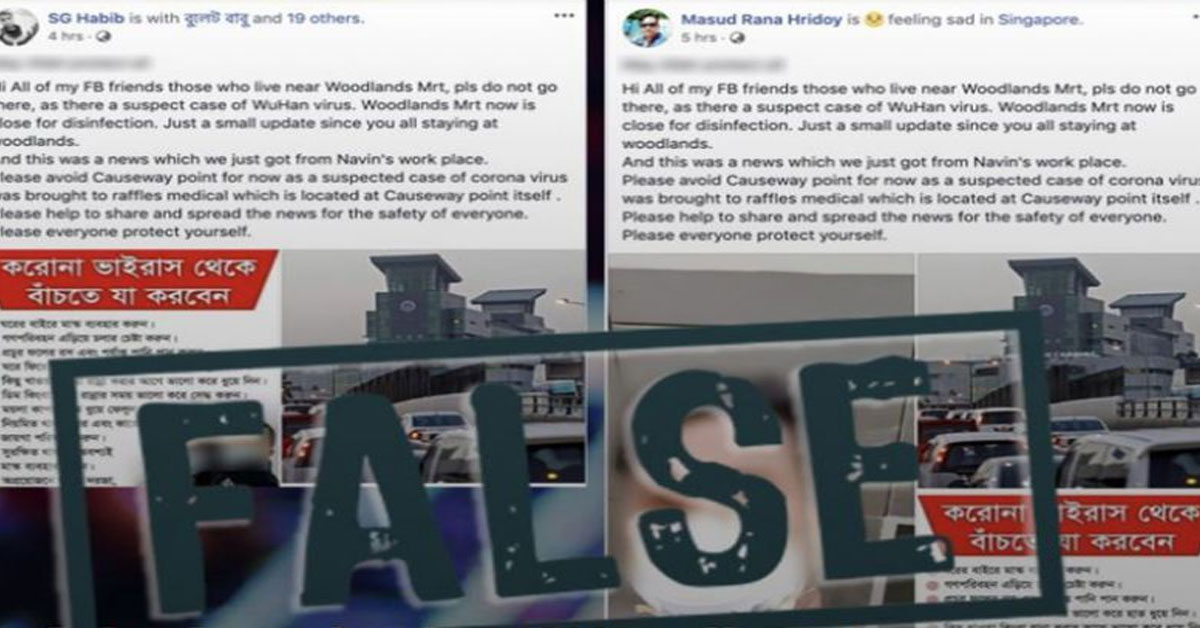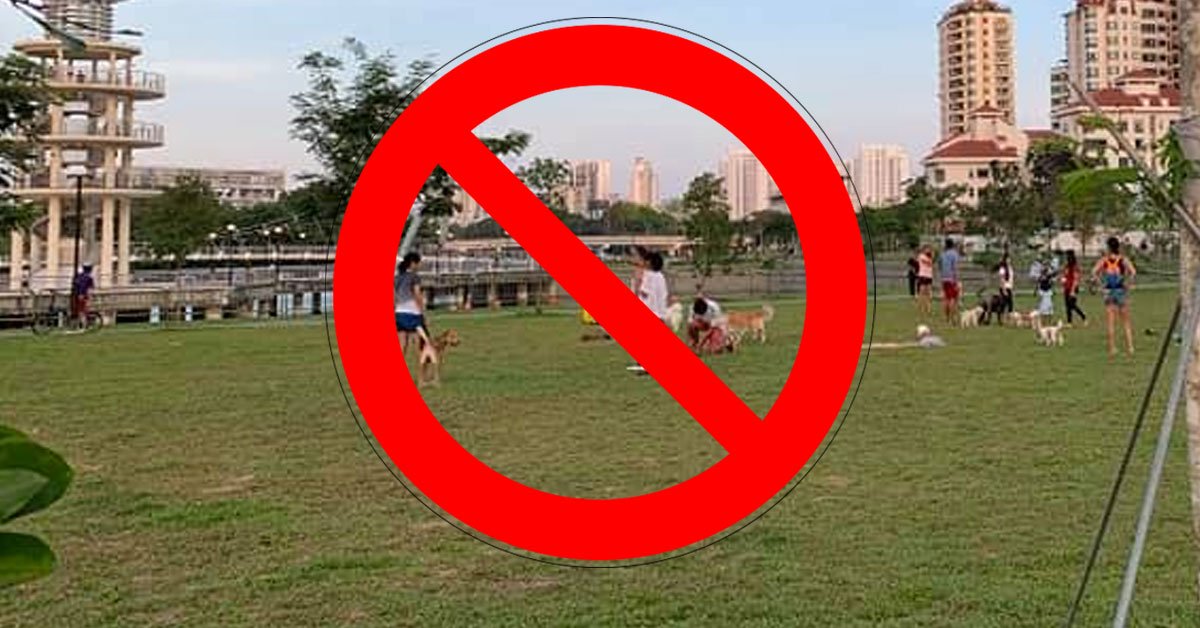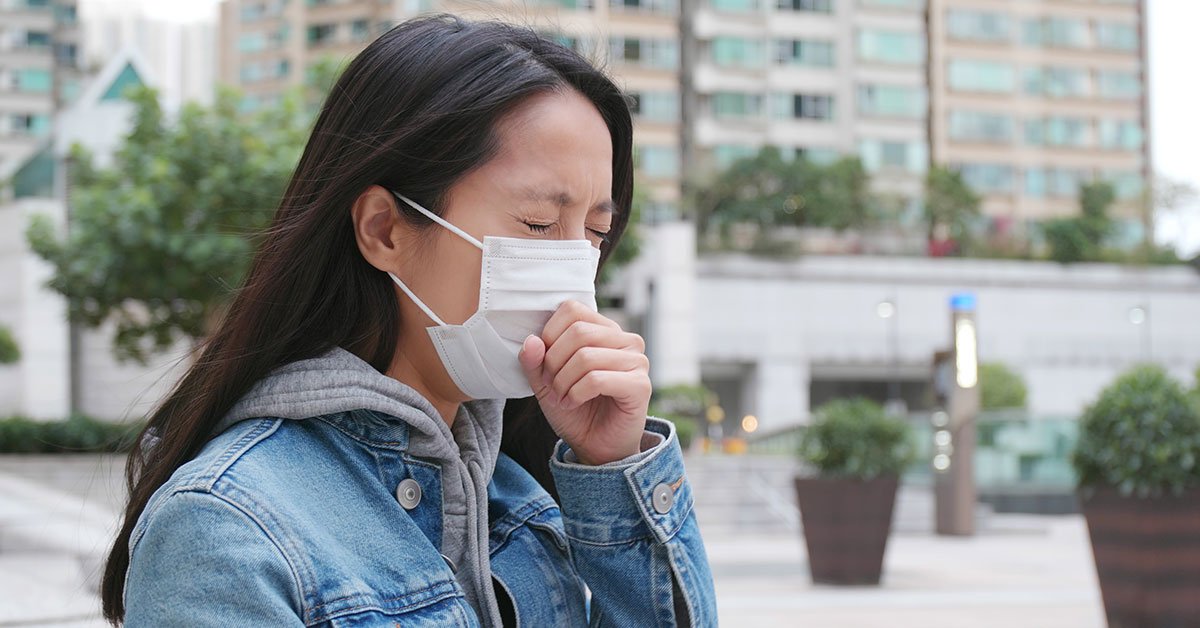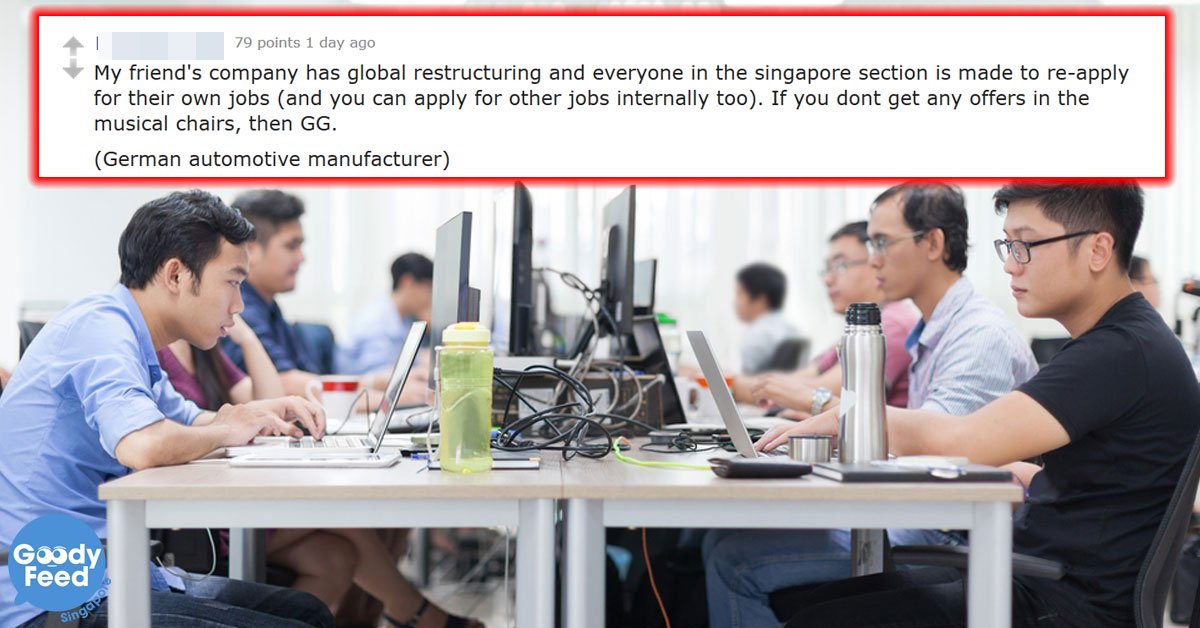When you first used the internet, you probably believed that everyone who wrote an article or post online was an honest and sincere person of integrity who would never lie to you.
This is why in my first week of using the internet I believed I had won two million dollars twice. Did I give away my bank details and actually lose money in the process? That’s not important. What is important is that I learned a vital lesson:
Don’t believe everything you read on the internet. (Especially if it’s about a deadly contagious virus)
Facebook Will Remove Fake News About Wuhan Virus Themselves Even Without POFMA
The Wuhan virus has ravaged the world; it has spread to over 20 countries, infected nearly 12,000 people, and claimed 259 lives at the time of writing.
But do you know what spreads even more rapidly than the virus? Fake news about the virus.
Like when two Facebook users claimed that Woodlands MRT was closed for disinfection because there was a suspect case of the Wuhan coronavirus, something that was later debunked.
Or when Singaporeans received a fake Wuhan advisory that contained debunked flu prevention tips.
That’s why Facebook announced it will start removing fake news about the coronavirus to prevent the spread of misinformation.
Limiting Misinformation
In an article on their site, Facebook said they have a global network of third-party fact-checkers who are constantly reviewing content and debunking false claims that are spreading about the deadly virus.
Wait, sitting at your computer and shouting FAKE NEWS in your best Donald Trump impression whenever you see something false is a job? Where can I sign up?
So, when these checkers rate information as false, Facebook limits its spread on Facebook and Instagram and shows people accurate information from these partners.
But, as you know, some people don’t really care about the truth. All of us have at least one uncle who forwards every single message he gets without verifying its content.
So, Facebook is basically muting our uncles the way we mute them on WhatsApp.
Thankfully, Facebook also sends notifications to people who already shared or are trying to share this content to alert them that it’s been fact-checked.
Removing Harmful Content
It’s not just that, however. If there is false information or conspiracy theories out there that have been flagged by leading global health organizations and local health authorities, and could cause harm to people who believe them, Facebook will remove it.
Think of fake news as a pest and Facebook as an exterminator.

Facebook said that it made a decision to start removing misinformation because they want to remove content that could cause physical harm.
So, instead of waiting for the POFMA office (Protection from Online Falsehoods and Manipulation Act) to come knocking at their door, Facebook is removing online falsehoods all on their own.
This includes claims that are designed to discourage treatment or taking appropriate precautions, such as false cures or prevention methods.
One example they gave was the false claim that drinking bleach could cure the coronavirus. You might think that only idiots would believe that, but there are many idiots out there. *throws away glass of bleach*
They will also block or restrict hashtags used to spread misinformation on Instagram, and are conducting proactive sweeps to find and remove this content.
Providing Helpful Information and Support
In addition to removing false content, Facebook will also be closely coordinating with leading health organizations to provide helpful information.
They will help people get relevant and up-to-date information from partners through messages on top of News Feed on Facebook.
So, when people search for information related to the virus on Facebook or tap a related hashtag on Instagram, Facebook will surface an educational pop-up with credible information.
Do this mean you can trust absolutely everything you see on Facebook now? No. But at least they see how dangerous misinformation about something as serious as the Wuhan virus can be.
These situations can make people anxious, and if these anxious people see a post saying drinking 12 cups of chocolate milk while swimming in a pool of tomato juice can prevent contracting the virus, some people might just do it.
That’s why the authorities have to step up; the last thing we need is people hurting themselves to avoid contracting a deadly virus. The situation is bad enough.
Advertisements



